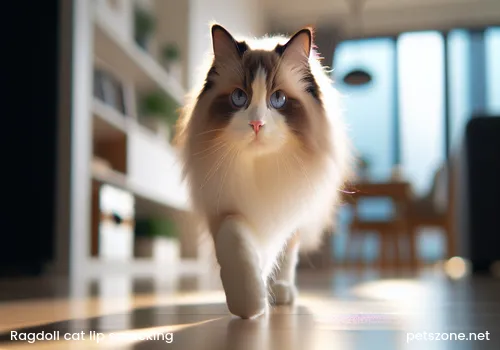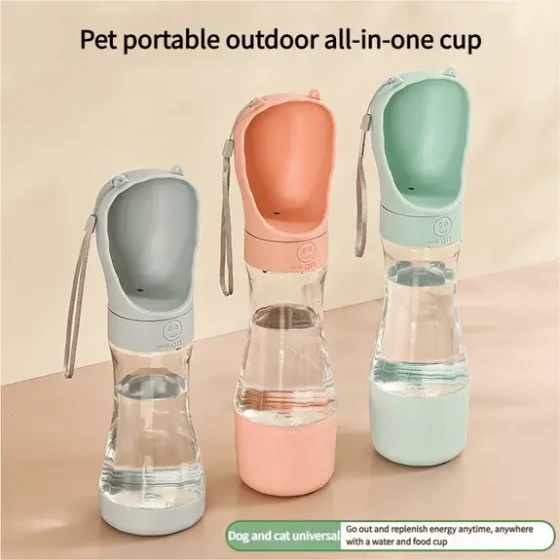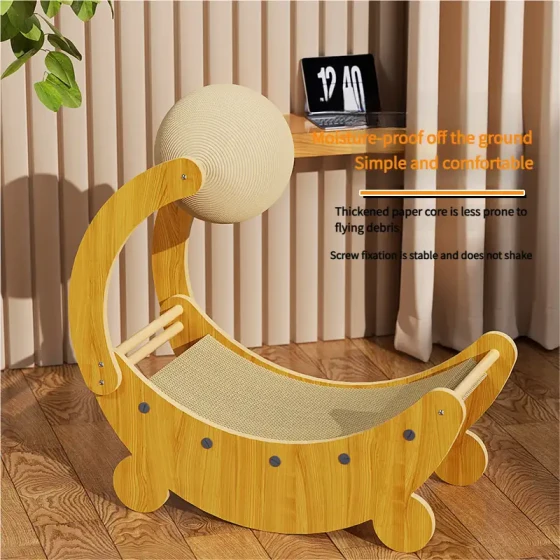Is it normal for Ragdolls to smack their lips_Analysis of the reasons cats make sounds while eating
Whether lip smacking in Ragdoll cats is normal depends on the situation. Sometimes it is a normal behavior of cats cleaning themselves or expressing satisfaction with the food. However, if it frequently occurs outside of mealtime or is accompanied by other abnormal symptoms, it may indicate oral problems, digestive discomfort, or even pain, which requires the owner's attention. In short, occasional lip smacking can be a harmless "after-meal treat" or "food compliment," but persistent or abnormal lip smacking may be a distress signal from the body.

Common reasons cats make sounds while eating
It is quite common for cats to make sounds, including lip smacking, while eating. These sounds may hide various causes, some normal physiological reactions, and some may indicate health problems. Understanding these reasons helps us better judge the cat’s condition.
1. This is the "delicious" moment! Satisfaction with food
Sometimes when cats enjoy delicious food, they make sounds similar to lip smacking or purring, which is likely their way of expressing praise and satisfaction with the food. Imagine how we unconsciously say "mmm~" when eating something tasty; cats do the same, especially when eating food they don't usually have or particularly like. This "gourmet monologue" becomes more noticeable.
2. Post-meal cleaning, a sign of cleanliness
Cats are very clean animals. After eating, licking their mouths and cleaning food residues on their face is part of their daily routine. The lip-smacking sound may be caused by them using their tongue to clean the hair or food particles attached around their mouth or lips, which is a completely normal post-meal grooming behavior. As a long-haired breed, Ragdolls have more facial hair, so cleaning after meals may be noisier, making lip-smacking sounds less surprising.
3. Eating too fast, gobbling down food
Some cats eat quickly, especially when they feel hungry or in multi-cat households competing for food. During fast eating, the mixing of food and saliva in the mouth can easily produce lip-smacking sounds, similar to how we sometimes make noises when eating too fast. This situation is usually harmless, but long-term fast eating can lead to indigestion or vomiting. Using slow feeder bowls can help slow down their eating speed.
4. Oral or dental problems
If a cat frequently lip smacks, especially outside of mealtimes, beware of possible oral or dental issues. Periodontal disease, gingivitis, loose or broken teeth, even oral ulcers or tumors can cause discomfort when swallowing or moving the mouth, causing lip-smacking or other strange sounds, and even affecting appetite. Just like we eat cautiously when experiencing a toothache, cats may try to relieve discomfort by licking or adjusting mouth movements. Check the cat's mouth for red or swollen gums, abnormal teeth, drooling, or bad breath. If these symptoms exist, it’s best to take the cat to the vet for a professional oral examination.
Cats do not need to chew slowly like humans; their teeth mainly tear the food apart and then swallow small pieces directly. The usual crunching sounds you hear are more about tearing food rather than chewing. But if this turns into persistent lip smacking, careful observation is required.
5. Digestive discomfort
Besides oral problems, mild digestive issues can also cause cats to lip smack. For example, gas in the stomach, mild nausea, or a foreign body sensation in the esophagus might make cats lick or lip smack to try to ease the discomfort. It’s similar to how we might feel uneasy before burping. If lip smacking is accompanied by decreased appetite, vomiting, or diarrhea, seek veterinary care promptly.
6. Stress and anxiety
Sometimes cats use repetitive behaviors like excessive grooming or lip smacking to soothe themselves when feeling stressed, anxious, or uneasy. This is a "displacement behavior" to divert attention. If lip smacking frequently occurs in specific situations (such as going to the vet or strangers visiting the house), it may be their way of coping with tension.
7. Reaction to certain tastes
If a cat licks something with an unpleasant or strange taste, it might lip smack to try to remove the taste from its mouth, possibly accompanied by drooling. Usually, this is temporary, but if it is suspected the cat has contacted toxic substances, immediate veterinary attention is necessary.
8. Hunger or thirst
Sometimes when cats see food or feel hungry, saliva secretion increases, causing lip smacking. Likewise, if a cat is thirsty and its mouth is dry, it may lick its lips to relieve the dryness.
Ragdoll cat specifics
Ragdoll cats are loved for their gentle temperament and beautiful fur. However, they also have some characteristics that may affect their eating behavior:
- Long hair characteristic: Ragdolls have long fur, especially on the face and chest, which is more likely to get food stuck during eating. This means they need to clean more carefully after meals, possibly making lip-smacking sounds more easily.
- Delicate stomach: Some Ragdolls have sensitive digestive systems and are prone to soft stools or indigestion. If the stomach is uncomfortable, they might express it by lip smacking.
When to be alert and seek timely veterinary care?
Although lip smacking is often normal, consult a vet if any of the following occur:
- Frequent and persistent lip smacking: If lip smacking happens often outside of mealtime or suddenly becomes very frequent, it should be taken seriously.
- Accompanied by loss of appetite or refusal to eat: If lip smacking coincides with decreased interest or refusal to eat, it could indicate pain or severe discomfort.
- Along with drooling, bad breath, or oral bleeding: These are clear signs of oral problems.
- With symptoms like lethargy, vomiting, diarrhea: This may indicate more serious health issues.
- Facial or oral swelling and pain: The cat might scratch its mouth with paws or avoid touch on its head.
Veterinarians will perform detailed exams including oral inspection, palpation, and possibly X-rays or blood tests to determine the exact cause of lip smacking and propose appropriate treatment.
How to reduce eating noises (when no health issues are involved)
If health problems are ruled out and lip smacking is due to habit or eating too fast, try the following methods:
- Choose appropriate bowls: Use ceramic or glass bowls to avoid noise from stainless steel. Ensure the bowl size is suitable and not too deep to prevent whiskers from hitting the edges causing discomfort. Some cats prefer elevated bowls to reduce discomfort when lowering their heads.
- Use slow feeder bowls: These have protrusions or partitions inside that increase feeding difficulty, forcing cats to slow down, reducing swallowed air and possibly lip smacking, also aiding digestion.
- Create a quiet eating environment: Cats need to feel safe while eating. Avoid loud noises or frequent disturbances during mealtime.
- Feed smaller portions more often: For cats that eat quickly, feeding multiple small meals a day can prevent excessive hunger and fast gulping.
- Clean after meals promptly: Use a wet wipe or clean cloth to gently wipe around the cat’s mouth to help remove leftover food.
Frequently Asked Questions
- Q: Is it normal for cats to smack their lips while sleeping?
A: Cats dream during REM sleep, often about everyday activities like hunting, playing, or eating. When dreaming of eating, cats might slightly open their mouths, twitch their whiskers, or even make lip-smacking sounds. This is a normal dream behavior and usually no cause for concern. - Q: Why does my Ragdoll eat slower than other cats and smack its lips?
A: The Ragdoll’s gentle temperament may cause them to eat more slowly, and their long hair means they spend more time cleaning after meals. If there are no oral issues, this is likely normal individual variation. As long as appetite and energy are good, there is no need to worry. - Q: My cat makes a grinding sound while eating. What does that mean?
A: Cats’ teeth are mainly for tearing food; the "crunching" sound is tearing food. If the sound resembles grinding and is accompanied by difficulty eating or pain, it likely indicates dental or oral problems. It is best to take the cat to the vet for an exam promptly.
In summary, observing a cat’s eating behavior and sounds is an important way to understand its health status. Lip smacking may be trivial or a warning signal. As responsible owners, we must watch carefully and seek professional veterinary help when needed.

-560x560.webp)

-560x560.webp)